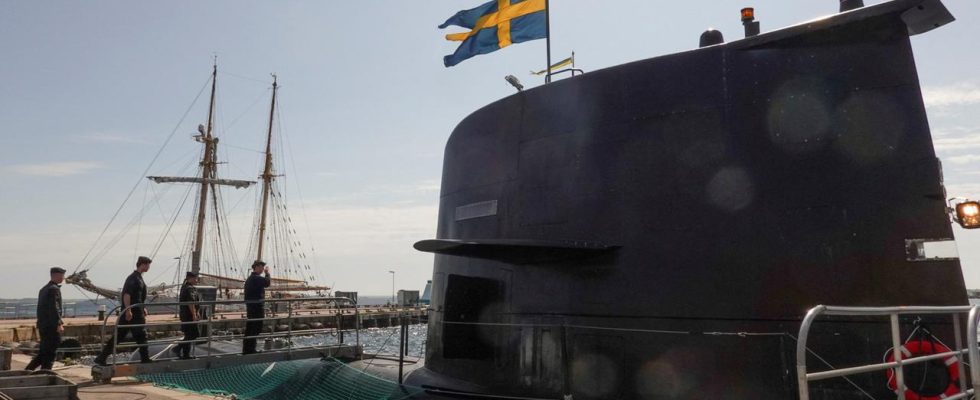Sweden’s accession to NATO changes the military situation in Northern Europe and especially in the Baltic Sea region. What exactly will the country contribute to NATO in the future – and who will benefit from it in the alliance?
The submarine lies in the harbor of Karlskrona like a huge whale. Only a small part of the dark steel colossus sticks out of the water. A Swedish war flag flutters in the wind on the tower. The submarine is part of the fleet that Sweden is bringing into NATO. And that’s something we’re proud of here, says the head of the Swedish submarine flotilla, Paula Wallenburg.
She speaks of a “world-class” submarine fleet that can maneuver in narrow waters. Other states are also capable of doing this with their submarines – “but in the Baltic Sea we are the experts. We know the region inside and out like hardly anyone else.”
Five modern submarines, specially designed for operations in the Baltic Sea: This makes NATO stronger, especially in times of Russian aggression, says Jacob Westberg, professor at the Swedish University of Defense in Stockholm.
Although he admits that the number of five submarines would not sound like a large armed force, he points out that “otherwise only Germany and Poland have submarines. As for the Polish ones, it is not entirely clear whether they are operational “Germany has six submarines. So that’s almost doubling NATO’s capabilities in the region.”
Long wait to join
The Baltic Sea is shallow and the water is cloudy, making it difficult to monitor – especially alone. Flotilla boss Wallenburg and her team will therefore focus primarily on good cooperation with Germany in the future.
After all, submarines could not cover an unlimited area when it comes to surveillance or operations. But by working together, we can “better prevent enemies from operating here,” she emphasizes.
Wallenburg does not yet want to reveal details about the future collaboration. Sweden has also worked very closely with NATO in recent years, but not as a member.
After Russia invaded Ukraine two years ago, the Scandinavians submitted their application for membership at the same time as Finland. But Sweden had to fight for a long time to get the okay from member states Türkiye and Hungary.
NATO not only benefits from the Swedish submarines and the strong navy and air force. Geopolitically, Sweden is also an important piece of the puzzle for the alliance, says military researcher Westberg. That’s how it will be NATO’s regional defense planning would be much easier if it could fully take into account Swedish resources and territory.
A “challenging Environment”
The Baltic states and Poland will be much better protected after Sweden’s accession. Reinforcements and resources could be transported more quickly in the Baltic Sea region in the future.
And it will be more difficult for Russia to isolate this part of the Baltic Sea, says Westberg. Sweden also wants to contribute financially: the country wants to achieve the NATO target of two percent of GDP for defense this year.
In Karlskrona, NATO membership also makes people feel safer, says submarine captain Viktor Moberg. The Baltic Sea has always been “a challenging environment”. But in the current situation everything has become even more unpredictable.
Julia Waschenbach, ARD Stockholm, tagesschau, February 27, 2024 6:47 a.m

